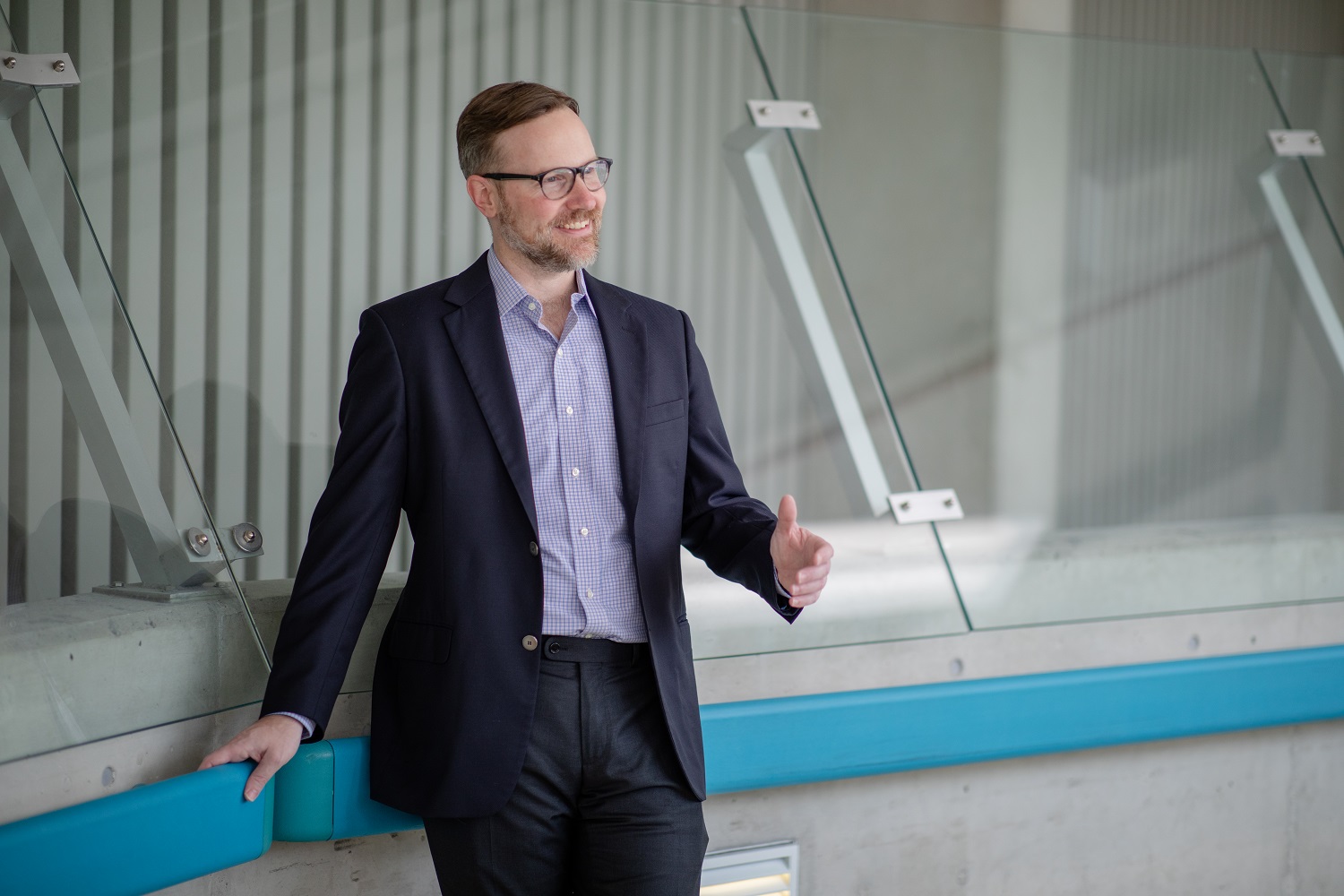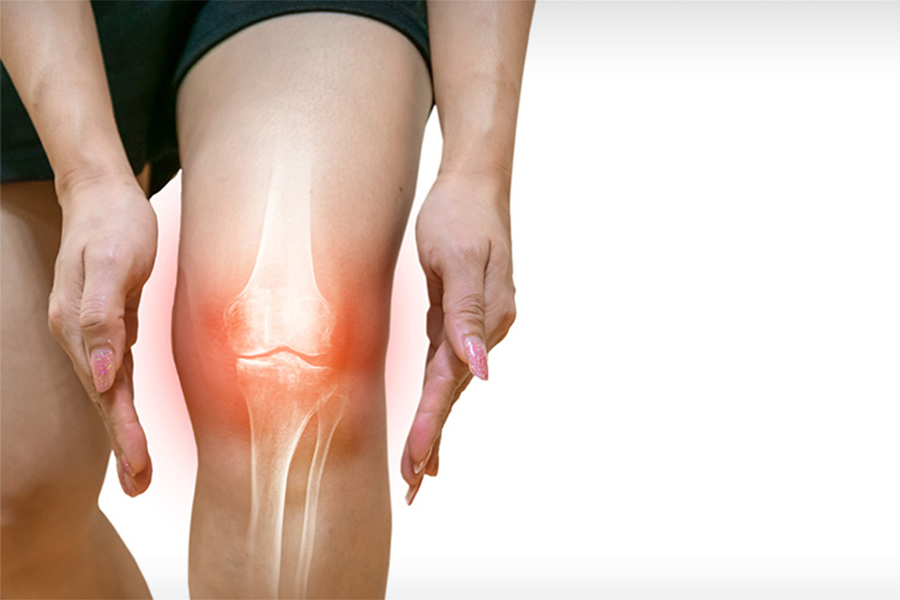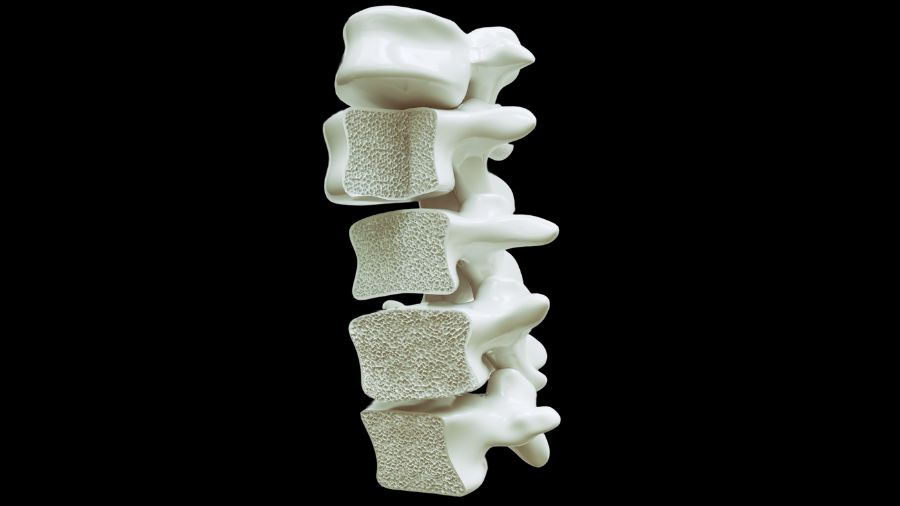Image-based navigation technology and an integrated approach to care at University Health Network’s Schroeder Arthritis Institute are helping patients get back on their feet faster. (Photo: Cayla Hochberg)
For many people, travelling to Antarctica is a bucket-list item. But for Cayla Hochberg, it was about so much more.
Hiking up a narrow glacier in Antarctica felt like hiking up a double black diamond run on a ski hill, and Cayla was afraid of falling. She’d just had hip replacement surgery six months earlier, before which, for many years she was afraid to do anything that might exacerbate her condition.
When she made it to the top of the glacier, pain free, she was inspired to send photos to her orthopedic surgeon, Dr. Michael Zywiel, at University Health Network’s (UHN’s) Schroeder Arthritis Institute.
“I love being active, I love travelling, I love my job,” says Cayla. “He gave me my life back.”
Cayla celebrates her one-year “hip-iversary” on April 1. That’s the day she received a new hip in 2022 at the age of 48. Prior to visiting the Schroeder Arthritis Institute, Cayla didn’t know she’d been born with hip dysplasia, a condition that made her more susceptible to hip injuries.
She’d always led an active lifestyle and started to train for marathons at the age of 30. But the last time she ran was in October 2015 during the New York City Marathon. “I was in pain, but I thought it was normal, I related it to training for the marathon,” she says. But she never bounced back. Even physiotherapy and cortisone shots didn’t help.

Eventually she was in so much pain she needed help putting her socks on. She was also struggling with her job as a teacher; it was hard to walk up and down stairs or even over to students’ desks. So, her sports medicine doctor recommended she see Dr. Zywiel for an anterior hip replacement.
“When we do the anterior approach, we don’t need to cut any muscles to get into the hip,” says Dr. Zywiel, who is also part of UHN’s Sprott Department of Surgery. “When you do it from the side—which has been the dominant technique in most of Canada for decades—you end up having to detach and then reattach one of the main muscles that controls the hip.”
With the anterior approach, patients tend to recover faster, stop using a walker or cane sooner and have lower pain scores after surgery. Many patients go home the same day, even with a double hip replacement.
Dr. Zywiel also uses image-based navigation technology, which together with X-rays taken during surgery, allow him to more accurately position the hip implants. This means patients more reliably come out of surgery with the best leg length and hip offset.
“These days there are a lot of patients who expect more of their hip, and Cayla is a good example of that. She wants to return to a more active life,” he says.
The Schroeder Arthritis Institute has an integrated approach to care for hip and knee arthritis. Patients often see an advanced practice physiotherapist and surgeon in one visit, and if they need an injection they can get one the same day. At every stage, the Institute is focused on maximizing the speed and quality of patient care and recovery.
Cayla went in for surgery around noon, was using a walker within hours and went home the same day. She used a cane for six to eight weeks, and six months after surgery—after getting the all-clear—she was hiking up a glacier in Antarctica with her husband, Lenny.
“Before the surgery, I could barely sit in a car for 20 minutes, let alone a 15-hour plane ride,” she says.
Arthritis is a global health issue, and as our population ages it will only get worse. Schroeder Arthritis Institute’s world-renowned expertise in multiple disease areas, combined with its research strengths and the drive of its people, make it a unique place to find answers to some of medicine’s biggest challenges.
But philanthropy is critical to driving healthcare advancements forward. Learn more about the Schroeder Arthritis Institute’s Campaign to Cure Arthritis: UHNfoundation.ca/arthritis.


